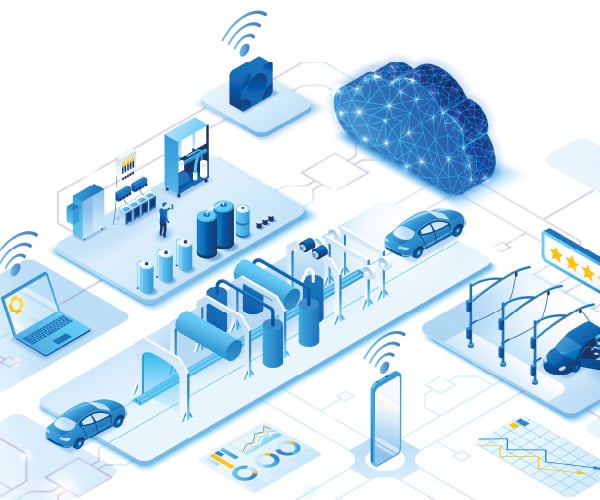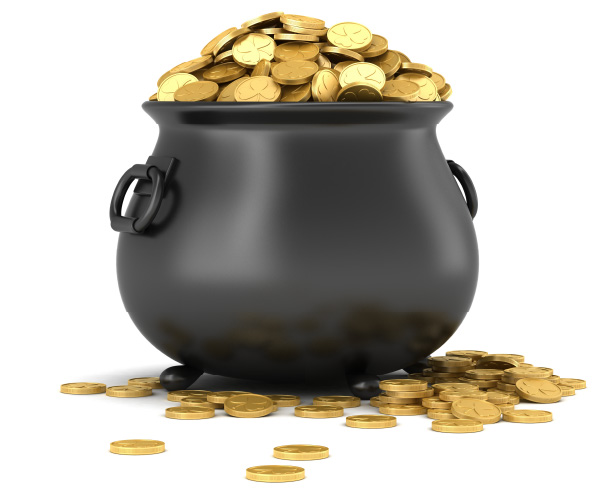
Smarten Up!
January 1, 2013
7 minute ReadIF YOU’RE AN experienced car wash operator, you might think you know your business inside and out and would have little to gain by crunching numbers. But companies from a wide array of industries are embracing business-intelligence (BI) applications to validate their assumptions, gain new insights into their businesses and predict what lies ahead, and some car wash operators are joining the trend.
In a competitive environment, some car wash operators are deciding not to rely solely on their experience and intuition to make decisions. Arming themselves with all the available data, the central tenet of BI, eliminates the guesswork and helps car wash operators identify strategies for success.
By collecting customers’ contact information and data about their purchasing patterns, car wash operators can use BI to create detailed reports that reveal the underlying trends in their businesses.
“The goal of BI is to use data to be more insightful about your business operations,” said Jon Shoberg, chief executive of the Columbus, Ohio-area BI consulting firm Adaptive Intel. “You’re able to perform a very robust analysis of the data, and it’s all at your fingertips, so you can derive whatever kinds of metrics you’re looking for.”
The International Carwash Association sees the potential in BI to help members improve their business operations, so it developed its Wash Count program, which provides BI information to operators so they can compare their car washes’ performance with others in the region over time. “The goal is to help members make better business decisions based on data,” said Eric Wulf, CEO of the International Carwash Association.
GETTING STARTED
Cindi Howson, the founder of BI Scorecard.com, a site for BI research and product reviews, said car washes and other businesses have many options for implementing BI.
Her site reviews popular BI products such as SAP Business Objects, IBM Cognos, QlikView, Pentaho and Tableau. Many of these desktop and cloud-based programs can be customized to any business and cost only a few hundred dollars to implement. There are free webinars and tutorials available to help businesses get started, or BI consultants can get the ball rolling.
“It’s all about using data to make better decisions,” said Howson, the author of Successful Business Intelligence: Secrets to Making BI a Killer App. “BI has gotten easier to implement. Businesses don’t need to have an IT department or be experts to use it. There are a lot of different deployment options and easy-to-use tools that aren’t just for large chains.”
Howson said there are examples of BI being used effectively all around us. As chronicled in the book and movie Moneyball, the Oakland Athletics used “sabermetrics” data and analysis to find good players on a limited budget. President Barack Obama’s re-election campaign used BI to target individual voters in key battleground states and optimize its voter-turnout efforts.
Amazon.com uses BI to suggest products a customer might be interested in after making a purchase, and Whirlpool uses BI to manage its warranty program.
Howson’s book details several companies’ effective use of BI, including 1-800 CONTACTS. The contact-lens retailer was trying to improve customer service and increase the value of its average order, so it installed a “dashboard” display on the computer screens used by sales professionals.
The display showed how long the customer had been on hold, the value of the customer’s current order compared with prior orders and the sales professional’s average order size compared with those of his coworkers. The company noticed an increase in the value of the average order within a week of installing the dashboard, Howson said.
BUILT FOR CAR WASHES
One comprehensive BI application available to car wash operators made by Akron, Ohio-based DRB Systems uses data stored on customer loyalty cards and radio-frequency identification tags (RFID).
The tags contain all the information the car wash has collected on a customer, and the data can be shared between all the sites in a car wash chain. When a loyalty card or RFID tag is scanned, the greeter will know the customer’s name, car details, purchase history and any other information the customer has supplied to the car wash.
For car washes, the benefits of collecting such data are myriad:
• Better customer service. The customer’s vehicle and payment information are at the employee’s fingertips, speeding up the transaction and leading to shorter lines. The system also can note which customers insist on extra vacuuming in the back seat, for example, ensuring that staffers meet customers’ expectations without having to be reminded by the customer.
• Boost revenue. The data collection helps employees offer upgrades more effectively. For example, if an employee sees that a customer typically gets his car waxed every third wash, then on those other occasions, the employee will know to offer a different kind of upgrade that the customer typically wouldn’t get, such as a tire shine.
One car wash uses BI to determine when a customer has refused all upgrades three consecutive times. When that occurs, the customer’s data profile is changed, and the computer instructs the employee not to offer upgrades but instead to offer a coupon for another wash at a 50 percent discount. That offer can increase loyalty among cost-conscious customers, said Ken Brott, DRB’s vice president of sales and marketing and a former ICA board member. He said such customers take advantage of the offer about 30 percent of the time.
• Improve employee morale and production. Learning which customers to leave alone can also improve the morale of employees who sell upgrades. Hearing the word “no” repeatedly can eventually reduce their level of enthusiasm and hurt their sales pitch. By sparing them a few rejections, car wash operators help employees save their best pitches and more of their time for persuadable customers.
• Dashboard display. BI applications also allow car wash operators to install dashboard displays of key metrics such as revenue per car, similar to the system employed by 1-800 CONTACTS. That data collection helps car wash operators determine which employees are most and least effective at selling upgrades and can even motivate employees to sell more.
One car wash installed this type of dashboard and noticed a 50-percent increase in revenue per car on the first day.
• Reduce staffing costs. BI can be used to evaluate how many cars usually visit your car wash on each day of the week, at various times of day and when various weather patterns are predicted. That data can help car wash operators gauge the level of staffing they need, making it less likely that they’re overstaffed, and therefore wasting money, or understaffed, and therefore creating longer wait times for customers.
A dashboard can be installed to track labor costs per car, a useful metric in determining whether a car wash has the appropriate level of staffing.
“The more you can get away from using just your intuition and instead focus on real data and patterns to understand what the day is going to be like tomorrow and the next day, the more likely you are to effectively plan your staffing,” Brott said. “BI is really good at creating visuals and graphs to help you see any problems your business has.”
• Retain customers. BI can target customers who suddenly stop visiting your car wash or significantly curtail their spending. When such customers are identified in the system, the car wash operator can then mail them coupons to encourage them to come back.
“If you’re not tracking customers, you need to start because your competitors probably are, and they’re going to be able to draw these useful conclusions,” Brott said. “We’re trying to provide tools that allow our customers to make smarter decisions, which is at the core of BI.”
BE HELPFUL, NOT CREEPY
With customers’ information available to so many retailers and even social media sites such as Facebook, many consumers are becoming increasingly wary of the Big Brother aspect of BI. Car washes and other businesses have to walk a thin line between getting the most out of their BI applications and not creeping out customers by knowing everything about them.
Asking for a customer’s contact information and perhaps his birthday is about as personal as a car wash should get while collecting data, Howson said, and a car wash should limit the number of people who have access to the data to ensure customers’ privacy is protected. And remember to use it sparingly. Sending a bulk e-mail every day is likely to become a nuisance to customers, but a well-timed coupon could lead to a spike in business.
“Privacy is a real concern, so for that reason, I don’t provide a lot of information unless businesses make it worth my while,” Howson said. “I’m not going to put an RFID tag on my car unless it’s going to provide me with some significant benefit, such as a volume discount that gives me a free wash on every fourth visit. You have to make it valuable to the customer.”








